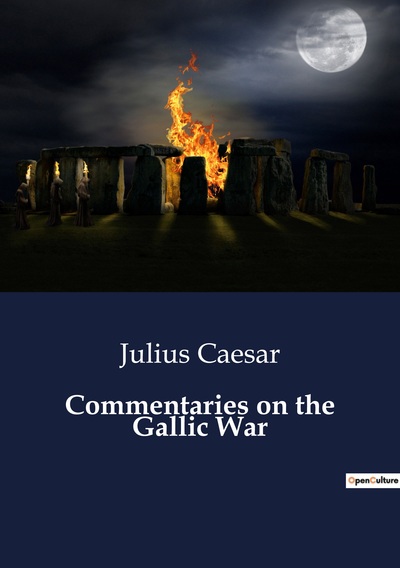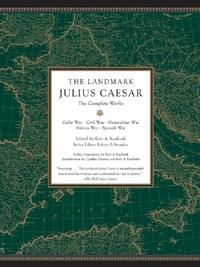Nous utilisons des cookies pour améliorer votre expérience. Pour nous conformer à la nouvelle directive sur la vie privée, nous devons demander votre consentement à l’utilisation de ces cookies. En savoir plus.
Commentaries on the Gallic War
EAN : 9791041800865
Édition papier
EAN : 9791041800865
Paru le : 18 avr. 2023
22,95 €
21,75 €
Disponible
Pour connaître votre prix et commander, identifiez-vous
Notre engagement qualité
-
 Livraison gratuite
Livraison gratuite
en France sans minimum
de commande -
 Manquants maintenus
Manquants maintenus
en commande
automatiquement -
 Un interlocuteur
Un interlocuteur
unique pour toutes
vos commandes -
 Toutes les licences
Toutes les licences
numériques du marché
au tarif éditeur -
 Assistance téléphonique
Assistance téléphonique
personalisée sur le
numérique -
 Service client
Service client
Du Lundi au vendredi
de 9h à 18h
- EAN13 : 9791041800865
- Réf. éditeur : 293866
- Date Parution : 18 avr. 2023
- Disponibilite : Disponible
- Barème de remise : NS
- Nombre de pages : 252
- Format : H:210 mm L:148 mm E:14 mm
- Poids : 330gr
- Résumé : Commentaries on the Gallic War describes the conflicts between Rome and the region of Gaul in western Europe, as well as the Germanic peoples who lived to the east of the river Rhine, and Britain to the north, in the later years of the Roman republic. Despite being written in the 3rd person, the commentaries are the memoirs of Julius Caesar himself, and offer a unique insight into these events. Before the Gallic war began, the Romans had already conquered the region known as Provincia Nostra (literally: "our province"), which is now Languedoc and Provence in the south of France. Julius Caesar had been one of the two consuls elected in the year 59 BC. The consuls held the highest political office in the Roman republic, but their terms only lasted a year. When his consulship came to an end, Caesar retained power through the position of proconsul, governing Provincia Nostra and two other provinces. This provided Caesar with the necessary command to conduct the military campaigns in Gaul. Caesar's victories in Gaul had huge repercussions on the future of Rome: the related work, Commentaries on the Civil War, documents the ensuing conflict between Caesar and Pompey that ultimately led to the end of the Roman republic and the beginning of the Roman empire.
- Biographie : Gaius Julius Caesar (Latin: ; 12 July 100 BC - 15 March 44 BC) was a Roman general and statesman. A member of the First Triumvirate, Caesar led the Roman armies in the Gallic Wars before defeating his political rival Pompey in a civil war, and subsequently became dictator from 49 BC until his assassination in 44 BC. He played a critical role in the events that led to the demise of the Roman Republic and the rise of the Roman Empire.



